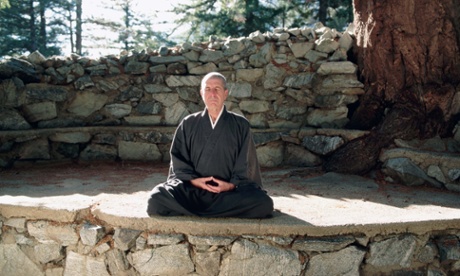
The first song on Leonard Cohen’s new album,
Popular Problems, which is released on Tuesday, two days after his 80th birthday, is called Slow. It begins: “I’m slowing down the tune/ I never liked it fast…” It is a song about encroaching mortality, but it is also a reaffirmation of a lifetime’s dedication to creative reflection, to taking his time in order to find the right words and the right melody, while keeping intact the mystery at the heart of every great Leonard Cohen song.
A new book, Everybody Knows by Harvey Kubernik, is a rough sketch of Cohen’s creative life: photographs juxtaposed with information and reminiscences from friends and associates. It traces the outline of a myth – or several myths: Cohen the poet, the folk singer, the seeker, the recluse, the Talmudic songwriter, the ladies’ man, the monk, the late-returning hero. Old age may have mellowed his voice, but Cohen remains mischievous and elusive, even if his best-known song, Hallelujah, has become a – much misinterpreted – standard.
During an entertaining press conference at the Canadian High Commission last Tuesday, Cohen referred to the “beneficial energy”of Hallelujah – at least when he sings it. When asked if, because of its success, he now felt like an institution, he paused, then replied: “Sometimes, but more like a mental hospital.” The new songs, he said, share “a mood of despair and melancholy”. His faithful would not have it any other way.
Unsurprisingly, it is the early photographs in Everybody Knows that are the most evocative. Here is the young Cohen in 1952, grinning and clad in cowboy gear, as a guitarist with the Buckskin Boys. Here is Cohen a few years later among bohemian friends at Le Bistro in Montreal, where he wrote one of his first poems, Marita, Please Find Me, I’m Almost Thirty, on the cafe’s back wall. Federico Garciá Lorca and Bertolt Brecht were his touchstones back then, but also, as he later revealed, singers including Hank Williams and Ray Charles.
A published poet and a novelist before he picked up a guitar, Cohen built his tower of song slowly. He honed his early songs on the Greek island of Hydra in the early 60s, where he met his first muse, Marianne Ihlen. In 1966, he visited New York en route to Nashville where he planned to make an album in the mould of the great traditional country singers. This fateful stopover brought him into the orbit of folkies such as Joan Baez and Judy Collins. The latter recorded Suzanne and Dress Rehearsal Rag as straight folk ballads a year before he invested them with the required mystery on his debut solo album, the stark Songs of Leonard Cohen.
In New York, he also met Nico, singer with the Velvet Underground, with whom he became besotted – Take This Longing is a naked expression of his unrequited love. Living in the Chelsea hotel, he bedded the doomed Janis Joplin and later hymned her in the famous – and equivocal – song of the same name. His songs of love and loss were slow and haunting, even more so than the solo acoustic songs of his Canadian contemporaries Joni Mitchell and Neil Young, while his deep, almost deadpan voice, as every contemporary reviewer noted, was an acquired taste in an era of often baroque musical excess.
And yet, listening now to those early albums, you hear someone who, for all his inexperience in the recording studio, his angst at what they might do to his songs, sounds remarkably self-contained. Back then, he stood outside the traditional singer-songwriter genre, and, to a degree, he has remained an outsider since, while always sounding somehow older and wiser than any of his contemporaries. “He was a man,” John Simon, who produced Songs of Leonard Cohen, said years later, “while the other rock acts I worked with were boys.”

